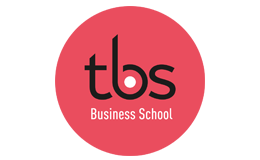What Does a Perfect GMAT Score Look Like?
How can I get a good GMAT score?

What Does a Perfect GMAT Score Look Like?
An 800 on the GMAT is a perfect score. When we say "the GMAT score," we mean the total score, which is the sum of your verbal and quantitative exam scores.
A flawless GMAT score is extremely rare. Only about 30 people per year earn an 800 on the GMAT, out of 200,000 test takers from over 100 countries. From year to year, this figure is quite stable.
Furthermore, it is likely that not all 30 test-takers are students. Every year, test coaches and tutors take the GMAT to help their students ace the exam, rather than to get admission to business school. It's possible that some of them are 800 scores, therefore the number of potential MBA students who score an 800 is likely to be much lower than 30.
We all know that a flawless GMAT score is quite rare. Is it, however, going to help you get into business school? Let's take a look at how significant a flawless GMAT score is in your applications package.
Do you require a GMAT score of 800?
Though a flawless GMAT score surely won't hinder your application, aiming for an 800 is impractical.
For one reason, even if you make a few mistakes, it's difficult to forecast whether you'll obtain a perfect or near-perfect score. The small difference between a score of 800 and a 780 could be as little as one incorrect answer. So the difference between "perfect" and "less perfect" on the GMAT could be nothing more than a fluke at times. You'll need skill and a little luck if you want to get an 800 on the GMAT.
Second, as I already stated, achieving a flawless GMAT score is extremely rare.
Because just 8% of students achieve a GMAT score of 700 or higher each year, a score of 750 is already considered exceptionally outstanding. Given that only about thirty students receive an 800 GMAT score each year and thousands more enroll in business school, it's evident that a perfect GMAT score isn't required to get into a prestigious MBA programme.
A high GMAT score, on the other hand, has a number of advantages (750 or above). Getting a GMAT score of 750 or more can set you apart from other MBA applicants, especially at elite schools. Incoming students from 16 of the top 20 MBA programmes have an average GMAT score of over 700. Stanford has the highest average GMAT score, 737, followed by Wharton and Harvard, which have average GMAT scores of 729, respectively (meaning, a lot of students scored higher).
Given that new students at top schools' average GMAT scores hover around 720, a GMAT score of 750 or more will help you stand out not only to admissions committees, but also to merit scholarship committees. At least a few scholarships are available to top MBA candidates at every school. An unusually high GMAT score can help you get into the running for MBA funding as a barometer of your academic success in business school.
Let's move on to how to ace the GMAT.
8 Tips for Achieving a Perfect GMAT Score
There are tried-and-true methods for improving your GMAT score quickly. If you want to get an 800 on the GMAT, you'll need to concentrate even more on study tactics, as you don't want to squander time studying ineffectively. Let's look at some of the most effective techniques to boost your GMAT score.
#1: Be Consistent in Your Studying
One of the most popular ways to sabotage your GMAT preparation is to study haphazardly with no specific objectives in mind. You won't be able to focus on what you actually need to focus on, and you will not be able to achieve the level of precision you'll need to do extraordinarily well on the exam if you do so.
You'll need to study frequently for at least three months to prepare properly for GMAT and get closer to an 800 GMAT score. At least three months of concentrated study time is critical since it allows you to prepare on a regular basis, assess your progress with practice tests numerous times along the road, and adjust your study strategy as needed. Consistency is crucial when it comes to GMAT preparation.
Cramming is unlikely to increase your score considerably (definitely not to a 750+ level). Instead, you'll need numerous weekly study sessions to drill certain skills and take practice exams to accurately assess your progress.
At the start of your preparation, make specific goals for each study session. Instead of "focus on the verbal section" or "take practice tests," your study schedule could say something like "complete 10 practice sentence correction questions in 10 minutes." This will keep you from doing and making the same mistakes over and over again without seeing any meaningful improvement in your score.
#2: Make the most of the best-practice materials
You should use the greatest quality practice resources to make the most of your GMAT study time. That means you should choose the best practise books and other resources available in terms of how similar they are to the real GMAT in terms of tone, format, difficulty, and content, as well as the best practise materials for you, i.e., the ones that will help you target your weakest areas. Any test taker hoping to ace the GMAT should start by making sure their practice resources are sound.
The finest GMAT preparation tools are in a computerized adaptive style, which is similar to the real exam. To improve your chances of getting a flawless GMAT score, look for timed practice tests to assist you get used to the duration of each session.
#3: Maintain a firm grasp on the fundamentals
You'll need to study every component of the GMAT to considerably increase your score and aim for a GMAT perfect score. To do well on the exam, for example, solid fundamental math, reading, and language skills are required.
After you've completed your first diagnostic GMAT and gone over the answer explanations, evaluate your weaknesses honestly. You'll need excellent scores on both the verbal and quant portions to earn a perfect or near-perfect GMAT score, so focus more time and effort on the one where your initial score is lower, especially if there's a considerable disparity.
GMAT prep that is more traditional (practise questions and examinations, for example) should be supplemented by fundamental skill evaluations.
Reading articles like The Economist, The New York Times, The Atlantic, and Science, for example, might help you become used to popular English twists of phrase and comprehend difficult information if you're having trouble with reading comprehension or sentence correction issues. Timing your readings and summarizing them afterwards might help you become a faster, more effective reader, which will benefit you in every section of the verbal portion.
#4: Work on GMAT practice questions that are difficult.
You'll need to discover difficult practice questions if you want to achieve close to an 800 on the GMAT. Some GMAT preparation tools provide more easy or medium practice questions, which won't help you improve your score by a few points. To earn an 800 on the GMAT, you must correctly answer the most difficult questions.
The majority of GMAT prep programmes allow you to sort practise questions by difficulty level. If you're aiming for a perfect GMAT score, make sure to complete as many sets of difficult practice questions as possible as part of your study regimen to ensure that you're up to the task and ready for anything the GMAT throws at you.
#5: Pay attention to the timing
To acquire a perfect GMAT score, you'll need to concentrate not just on the exam's substance, but also on its scheduling.
You'll need stamina and a knack for good pacing, as the exam is around three and a half hours long. If you go too fast, you risk missing critical nuances in a question or answer choice; if you go very slow, you might risk not finishing a section, which can lower your score dramatically. If you're going for a flawless GMAT score, pacing is very critical because even little timing errors might cost you many questions, which you can't afford if you're aiming high.
First and foremost, practise with timed tests to improve your GMAT timing. Only take breaks when you know you'll need them on the exam. You won't be burnt out when you take the real test this way. As you approach exam day, you'll fall into a routine that will feel comfortable.
Pacing drills can also aid in the development of your timing. Choose the types of questions you have the most trouble with, determine how much time you should spend on each one, and create clear goals for each drill appropriately. Pacing drills should be incorporated into your regular study sessions, especially if timing is a problem for you.
#6: Concentrate on Your Weaknesses
The single most crucial aspect of passing the GMAT is to focus on your shortcomings. You won't obtain the kinds of huge score gains you need if you merely study every area of the exam equally, and you'll likely miss critical details that could propel you to the top rung of results.
Assess your deficiencies as precisely as possible during your initial diagnostic GMAT. What kinds of mistakes do you make? Were there any pacing issues? Which types of questions are the toughest for you to answer? What talents do you need to improve within those question types? Did you make reckless mistakes as a result of your anxiety? Are you not thoroughly reading each question? Were you perplexed by the format?
Whatever the issue is, you'll need to troubleshoot it down to the last detail to raise your score to the 750+ level, and especially to attain an 800 GMAT score. Take some time after each practice quiz and test to thoroughly study the answer explanations and assess where you went wrong. Are you making the same mistakes repeatedly? Set up drills that target those patterns during your practise sessions, and consider employing supplementary practise materials to concentrate on your weak places.
#7: Exercising in Realistic Test Environments
You'll need to study not only for the exam's timing and substance, but also for the format and testing conditions, if you want to earn a flawless score on the GMAT. Even the tiniest detail might throw you off during the exam and lose you valuable points, so you should feel as relaxed and prepared as possible for the GMAT.
For example, as much as feasible, practice using approved practice examinations in computerized adaptive style. The more familiar you become with the GMAT format, the less likely you are to waste time or mental energy on exam day attempting to figure out what a question is asking you.
#8: Make a firm commitment to achieving a perfect GMAT score.
Still trying to figure out how to ace the GMAT? There's no getting around it: achieving a flawless or near-perfect GMAT score will necessitate a lot of work and dedication, as well as the correct attitude. To make a significant difference in your score, you'll need to put in the effort, especially to study your shortcomings so you can avoid them in the future. Test takers who raise their scores by 50 points or more commonly report studying for over 100 hours, so be prepared if you expect a significant change in your score.
Finally, keep an optimistic attitude! When it comes to significantly improving your GMAT score, stamina, which requires a good mindset, is just as vital as commitment and consistency. Don't get disheartened if your score doesn't improve right away; stick to your study plan and focus on your shortcomings, and you'll get the results you want.





































.png)









.png)
























.png)















.png)





